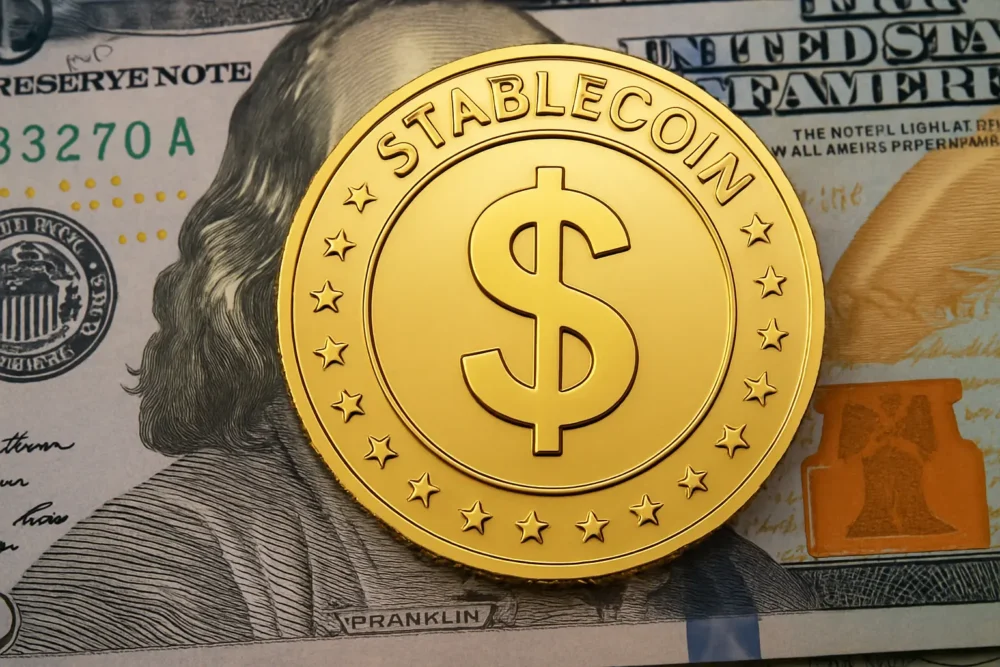Traders on Polymarket are showing strong belief that the United States will pass a major new law to regulate stablecoins.
The bill, called the GENIUS Act – short for Guiding and Establishing National Innovation for US Stablecoins – has a 89% chance of becoming law before the end of 2025, according to bets placed on the platform.
This rise in confidence comes after the US Senate passed the bill with a 68–30 vote earlier this week. US President Donald Trump supported the move. He praised the Senate’s vote and urged the House of Representatives to approve the bill without making any changes.
Trump posted on Truth Social that the bill is a “great move” and would help the US stay ahead in the crypto industry. He also asked lawmakers to send the bill to his desk quickly for signing.
Polymarket traders reacted fast. Within a day of the Senate vote, betting interest surged. The market now reflects strong expectations that the House will approve the bill and Trump will sign it into law.
But the House vote is not guaranteed. Although Republicans hold a narrow majority, some lawmakers may push for changes.
There are concerns about Trump’s possible links to World Liberty Financial, a company connected to a stablecoin called USD1.
A proposal to look into these ties was rejected in the Senate before the final vote, but similar efforts may come up again in the House.
If passed, the GENIUS Act would bring clear rules for stablecoins backed by the US dollar. The bill says only regulated companies can issue them.
It also requires that the digital tokens be fully backed and monitored by either the Federal Reserve or state banking regulators.
Some lawmakers worry the bill does not include enough consumer protections. Others say it may open doors to political or financial abuse, especially with Trump’s strong backing. Still, many in the crypto space see the bill as a big step forward.
Large US companies like Apple, Meta, and Google are watching the bill closely. Senators have even asked Meta if it would return to its stablecoin plans if the rules become clearer.
One crypto analyst said the GENIUS Act could be a “New York Stock Exchange moment” for stablecoins – a turning point that brings big players into the space.
If the law is passed, tech firms and banks might use their own stablecoins for payroll, payments, or international transfers.
The House is also reviewing another bill called the CLARITY Act. This outlines which federal agencies will oversee different types of digital assets. Lawmakers might combine both bills into a larger package of crypto rules.
Circle’s share price jumps after senate vote
The GENIUS Act is also shaking up financial markets. Circle Internet Group, the company behind the USDC stablecoin, has seen its share price rise sharply. Since its initial public offering (IPO) on 5 June, Circle’s stock has jumped more than 530%.
On Wednesday, the stock closed at $199.59 – up nearly 34% in one day. It also saw record trading volume, with over 63 million shares changing hands. After the market closed, the stock rose another 6%.
Investors are reacting to the Senate’s vote on the GENIUS Act. As a major stablecoin issuer, Circle could benefit from clear regulations.
The company’s main product, USDC, is the second-largest dollar-backed stablecoin after Tether’s USDT. USDC has a market value of $61.4 billion and makes up about one-quarter of the stablecoin market.
Circle has been expanding its reach. It recently added USDC to the XRP Ledger, allowing better cross-chain access. Also, Coinbase Derivatives – a partner of Circle – said it plans to allow USDC as collateral for crypto futures trading by 2026.
One analyst from Galaxy Digital said, “Circle is becoming the Apple of stablecoins”. He praised the firm’s visibility, compliance, and growing trust among institutions. He added that the GENIUS Act could strengthen Circle’s lead in the market.
The stock’s strong performance shows that investors believe Circle will benefit from a regulated stablecoin environment.
Other companies are also riding the wave. Coinbase stock rose 16% on the same day, likely due to its ties with USDC.
Even though the House still has to vote on the bill – and concerns remain about Trump-linked firms like World Liberty Financial – markets are optimistic. They see the Senate vote as a sign that the US government is serious about supporting crypto innovation.
Arizona pushes ahead with crypto reserve bill
While the GENIUS Act makes progress in Washington, Arizona is making its own moves in the crypto space. State lawmakers have revived a bill called House Bill 2324. It aims to create a fund to hold and manage digital assets seized through criminal cases.
The bill passed the Arizona Senate last week in a 16–14 vote. It now goes to the state House of Representatives for further debate.
HB 2324 was first introduced in February but failed a final House vote in May. However, procedural moves brought it back to life, and now it’s gaining momentum again.
The bill allows the state to expand its asset seizure laws to include crypto. It proposes a Bitcoin and Digital Assets Reserve Fund, which would be managed by the state treasurer.
This fund would store and invest the seized assets – either directly in crypto or in ETFs linked to digital assets.
If approved, the first $300,000 from these sales would go to the Attorney General’s office. Any additional funds would be divided – 50% to the Attorney General’s office, 25% to the state’s General Fund, and 25% to the new crypto reserve fund.
The bill also lays out rules for handling digital assets securely. It states that all seized crypto must be stored in a secure, state-approved digital wallet. Only authorised personnel would have access to prevent theft or loss.
There are also protections for innocent owners. If someone’s digital property was seized and they can prove they were unaware of its criminal use, they could reclaim it.
But there’s a hurdle ahead. Arizona Governor, Katie Hobbs, has vetoed similar bills before. She rejected Senate Bill 1025 in May, which also aimed to create a Bitcoin reserve.
She previously blocked two other crypto bills: one allowing state agencies to accept crypto payments and another to form a separate reserve fund.
The Governor argued she had already signed HB 2749, which lets the state claim ownership of abandoned crypto if the owner doesn’t respond for three years.
So, even if HB 2324 passes the House, its chances of becoming law may be slim. But for now, Arizona’s lawmakers are pushing ahead.


